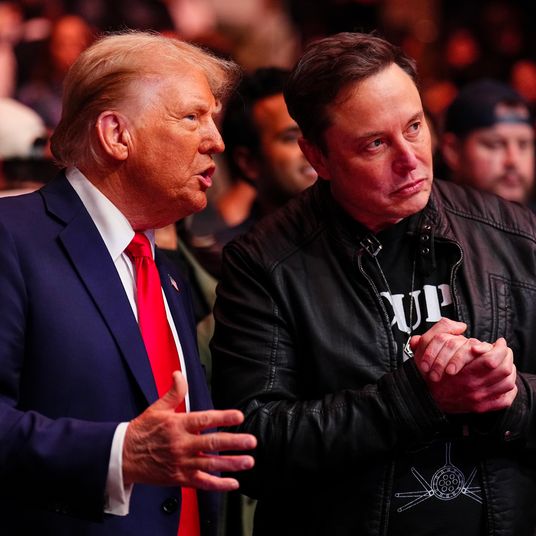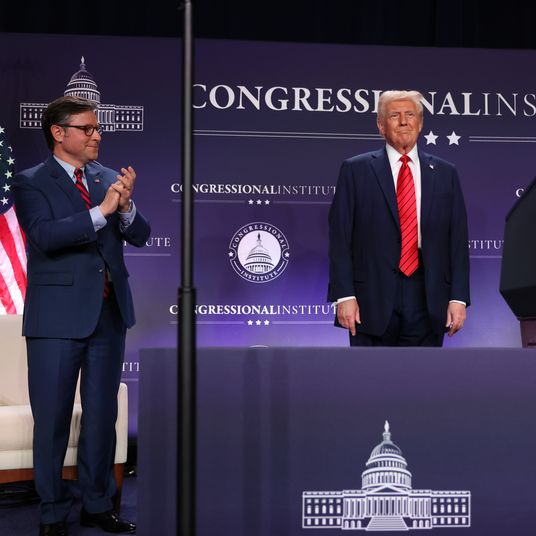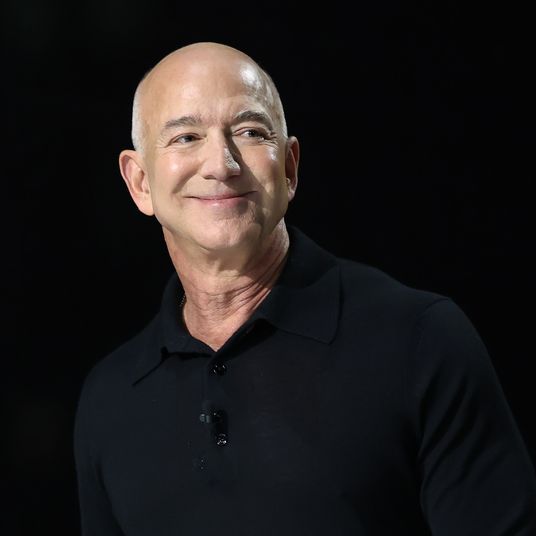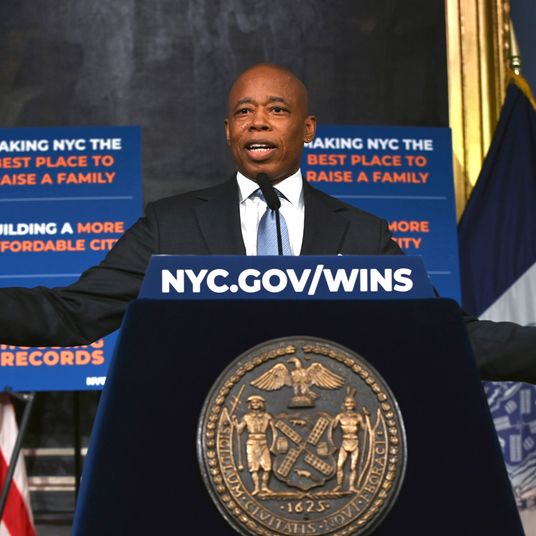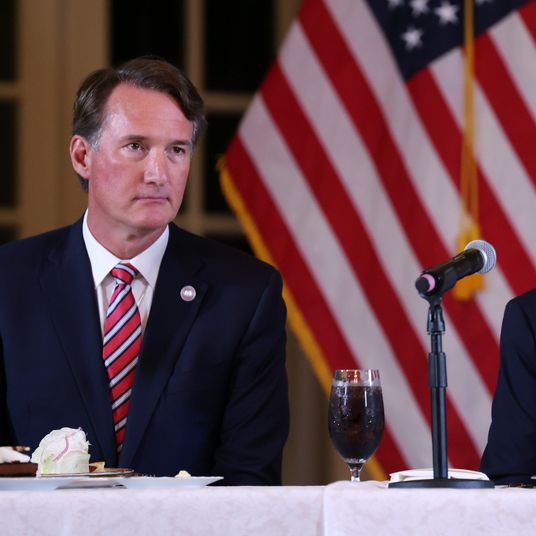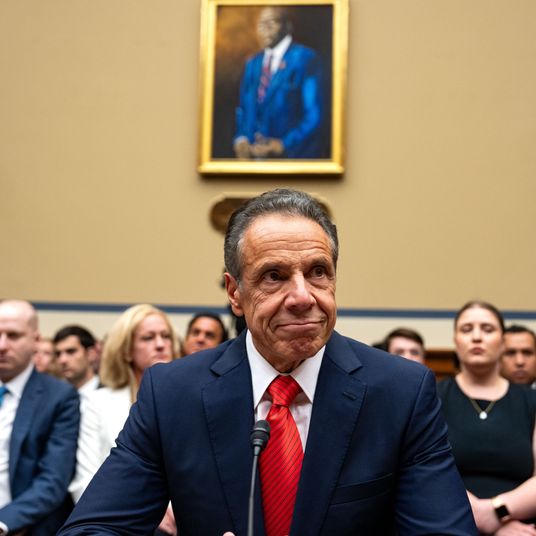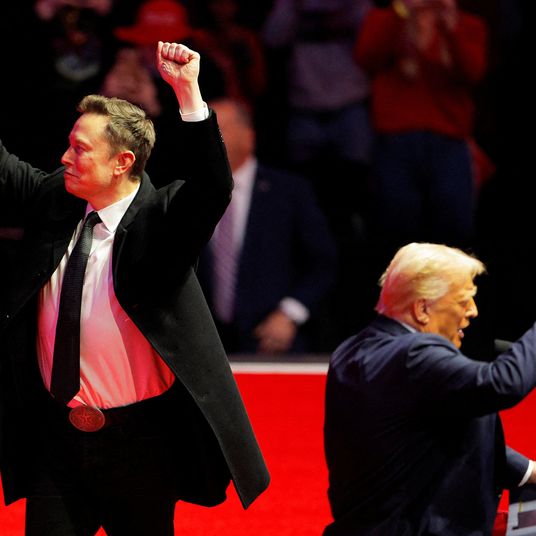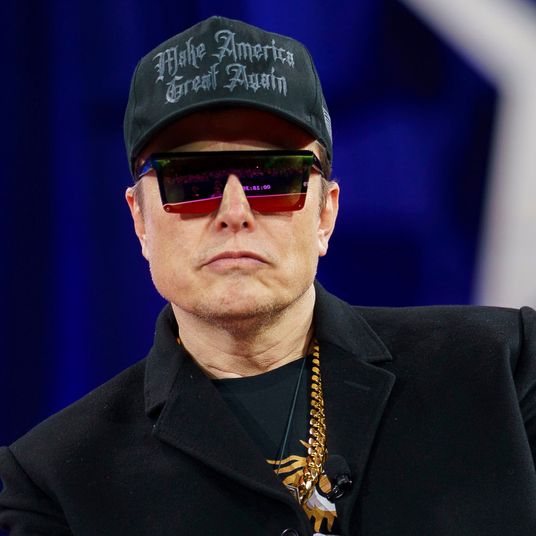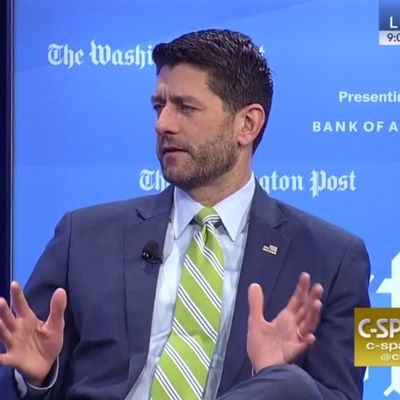
In a valedictory interview with the Washington Post, House Speaker Paul Ryan depicted himself, and was in turn depicted by his hosts, as he has always chosen to be seen: a wonk-statesman, a little too good and pure for the ugly world of politics, who pointed the way toward a brighter and more responsible future and of whom it could be said, at the very worst, failed only to achieve the ideals for which he strived.
“He’s worked to solve important national challenges, including tax reform and fiscal sustainability,” said Post publisher Fred Ryan. To be sure, the fiscal sustainability issue may not have been solved completely (the deficit has, indeed, nearly doubled under the unified government carrying out Ryan’s agenda despite the mature recovery), so the retiring Speaker had to offer an awkward half-apology. “The two regrets I wish we could have gotten done,” he acknowledged, were immigration reform and debt.
Nobody present was so impolite as to point out that Ryan has devoted his career to passing policies that would increase the national debt. Under the Bush administration, he supported every one of the debt-financed measures that turned the surplus the administration inherited into the trillion-dollar annual deficit it bequeathed its successor: tax cuts, a Medicare prescription-drug benefit, wars in Afghanistan and Iraq, and a large security buildup, all financed by debt. Indeed, Ryan distinguished himself from his party by urging the administration to support even larger, costlier, and more debt-laden versions of the tax cuts and Social Security privatization schemes than it was willing to endorse. Ryan’s primary complaint with Bush was that he was too fiscally responsible.
Under the Obama administration, Ryan opposed the deficit-reducing health-care reform that has led to falling health-care inflation, and foiled efforts by President Obama and House Speaker John Boehner to craft a bipartisan deal to reduce the debt. Once he was able to enjoy a Republican president who would sign his bills, Ryan passed a huge debt-financed tax cut.
The debt fell under President Obama because Obama was able to block Ryan’s deficit-increasing policies from taking place. Once Obama couldn’t stop him, Ryan went ahead and jacked up the debt, which is exactly the course he had supported the last time his party had total control of government. When Ryan has had to share power, he has blocked compromise to reduce the debt. When he has not had to share power, he has supported laws to increase it.
There certainly are philosophical reasons to support Ryan’s agenda. Ryan hates progressive taxation, supports expensive military commitments, and is willing to support expensive middle-class social benefits if they help gain votes for his regressive tax agenda. Alternatively, some people think the deficit is not a problem at all. But these are not the terms on which Ryan has been defined. Somehow he has managed to pose as a figure who has fought rising deficits with only partial success, rather than having been largely responsible for their growth.
“I think history is going to be very good to this [Republican] majority,” he proclaimed. Only if historians are as gullible as the news media.










